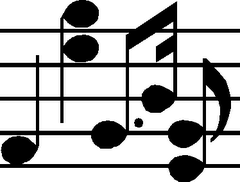The Sleeping Buddha:
Portraits of a Changing Afghanistan
by: Hamida Ghafour
The Sleeping Buddha:
Portraits of a Changing Afghanistan
Author: Hamida Ghafour
Format: Hardcover Published: May 1, 2007
Dimensions: 6 x 9 x 0 in
ISBN: 1552786447
Published By: McArthur & Co.
'A foreigner,' someone answers.
'No, she's Afghan. Can't you tell?'
'She is not Afghan - she is writing.'
Excerpt: A young boy of about ten sidles up to me and watches my notebook intently. He looks completely puzzled. He doesn't understand that a woman can write. The image of a woman holding a pen is far more alluring and powerful than anything the politicians here today have to say. The crowd grows and grows. Some laugh and point. I am conscious of my black scarf slipping from my head. Hamida Ghafour's family fled Afghanistan after the Russian invasion, when she was just a child. In 2003 she goes back as a journalist to cover her country's reconstruction, and finds it utterly unlike the world her parents have brought her up to believe in. In the Kabul of the 1970s, women wore miniskirts and drove buses; now few dare leave the house without the chadari. It is a society divided: between communists and mujahideen, between those who stayed and those who left - like Hamida herself. All around her is the West's first post-9/11 experiment with Islamic democracy. But the ordinary people she meets are engaged in a different kind of nation building: a 'beautician without borders' whose school teaches its female pupils economic independence; a woman campaigning fiercely against warlords and armed thugs for a seat in her country's new parliament; an archaeologist digging for a giant sleeping Buddha, a symbol of Afghanistan's lost civilisation.Hamida must sift through the rubble of her family's past to understand the nation's future - and to reclaim her sense of what it means to be Afghan. Review: `Extraordinary ... her eyewitness accounts provide powerful insights into recent events from the perspective of a western woman, but with the inside track of an Afghan.'
About the Author: Hamida Ghafour's family left Afghanistan for Toronto in 1981, following the Soviet invasion. After working for Canada's national broadsheets she moved to London in September 2001, where she continued her career as a journalist. In 2003 Hamida was posted to Kabul to report on Afghanistan’s reconstruction for The Telegraph and Globe and Mail. She now lives in London and covers Islamic affairs for various international publications.
I came across a review about this book and decided to pass it on. Currently it is not available, but can be ordered through Chapters. http://www.chapters.ca/ It may help with understanding, from the eyes of an Afghan (female) returning to her homeland and perceiving before and current lifestyles. After all, many of our family members and friends have been a significant part- a part of history- in the reconstruction of Afghanistan.
Over the past 40 years, Afghanistan has suffered through invasions by both of the world's superpowers, a civil war, fundamentalist Taliban rule, communist oppression and ongoing attacks by the world's most notorious insurgent groups. Life expectancy is 43 years, comparable to life in medieval Europe. Only 11% of the rural population has access to clean drinking water. Most Afghans have never walked an hour beyond their village with many so isolated they've never seen a car or a television. In 2003 Canadian journalist Hamida Ghafour went to Afghanistan to cover the rebuilding of her native country while tracing her roots in a rapidly changing landscape. Over twenty years earlier she and her brother were whisked away to India with her parents amidst the fighting between the Russian-supported communist government and the mujahideen. At the time her parents imagined they would be away for a handful of years at most until the restoration of peace. After four years they moved to Toronto and are still waiting for the bloodshed to end back home. Ghafour's account (which we read from pre-published proofs) of the experiment in turning the dysfunctional tribal country into a democratic Muslim society raises many questions about the assumptions we've made in the West about what's best for a people largely living in the Middle Ages. "Afghanistan was, and still is, an extreme example of the debate within the Muslim world about modernity, its relationship with the West, the role of religion and the role of women," she writes. Ghafour comes to realize that not only can't you go home again, sometimes you dodge a bullet by getting the hell out. "I couldn't shake off the sense of a near brush, and that I was watching my life as it could have been," she writes. But not all ex-pats were similarly chilled. Many she met were moved to kiss the tarmac upon arrival and felt liberated. "Hundreds of young Afghans in their twenties who had grown up or were born abroad were now returning to sort out their identity crises," she observes. "Some took the opportunity to unleash all the pent-up machismo they had to tone down in the feminized West - Apache helicopters rushing through the skies, AK-47s slung over the arm of every man, it was like a real-life video game." Most of those young people, however, were men. As a woman travelling the length and breadth of a conservative, patriarchal country, Ghafour was continually asked, with varying degrees of hostility: Are you married? Do you have a husband? Do you have a son? Where is your father? Who gave your permission to come here? Ghafour, gutsy in her own right in conversing with warlords and travelling to the most dangerous corners of the country, profiles the courage of a number of women she met in Afghanistan, from her cousin who defied death threats to run for office to a hairdresser teaching previously house-bound women a trade. In the West, Ghafour leads the life imagined by her grandmother, also named Hamida, a member of Afghanistan's Awakening of Youth movement in the 1940s. She was an active member of a group of reformers who campaigned for liberal change including opening women's schools and the abolition of the veil and forced marriage. Hunting for magazine articles written by her grandmother, Ghafour learns this bit of heritage is part of the country's past which has been stolen, burned or blown to bits. Books that survived the communist purges were looted by the mujahideen and what was left was incinerated by the Taliban. Ghafour notes the story of a six-tonne Buddha seized by police as it was being dragged across a railway station platform in Peshawar, while other antiquities slip more quietly across the border. She interviews an Afghan archaeologist who weeps at the destruction of the famed Bamiyan Buddhas, built into a mountainside sometime between the third and fifth centuries, blown up by the Taliban in 2001 before 9/11. "Afghans know their country is centuries behind in education, infrastructure, economy. But their immense heritage, their role as inheritors of humanity's rich history, was proof that they were at least a civilized people," she writes. "The destruction of the Buddhas took that away." About the only thing this impoverished, landlocked country isn't short of is guns. The influx of modern weaponry stepped up during the Soviet occupation in the late '80s, with over $4 billion in weapons supplied by the U.S. to the insurgents, including the shoulder-held, laser-guided Stinger missiles which helped turn the tide of the revolt against the Russians. After the Russians left, American interest waned and no effort was made to clear the landscape of weapons for 14 years before a disarmament program was declared in 2003. Today it's estimated there are 40 million small weapons in Afghanistan for a population of 31 million, and good luck getting 'em back. Ghafour quotes a United Nations official who says Afghanistan's attitude toward guns "makes the National Rifle Association look like a bunch of pinko softies." To illustrate the years Afghanistan was used as a staging area for al-Qaida, Ghafour interviews members of the Khadr family, who left Canada to fight for the mujahideen about the same time the author's family arrived on our shores to escape the bloodshed there. Today some of the Khadr family members are back in Toronto, while son Omar continues to be held at Guantanamo Bay as an "enemy combatant." "The Khadrs are the sort of Islamic fundamentalists who crystallize for some what they think is wrong with a multicultural society," Ghafour writes. "They denounce freedom of speech and liberal attitudes to sex but live on the dole with taxpayers' money. They want to force the world to live under a caliphate but still insist on their share of free health care." The family matriarch bemoans the fact that her son Abdul Karim, returned to Canada for medical treatment after he was wounded while with al-Qaida, is being polluted by Western culture. Held out for particular disdain is Adbul Karim's favourite show: The Family Guy. "It is the worst program. It's about a little boy who cannot even talk, he's in diapers. And it's about how he can get rid of his mother, how he can kill his family." What the deuce! The UN estimates there are 850 "illegally armed groups" which are responsible for an unrelenting crimewave across the country. Ghafour is critical of America's approach in dealing with some these groups as part of its plan to cleanse the countryside of Taliban and al-Qaida operatives. "The lack of synergy between the Americans and NATO is obvious," Ghafour writes. "The United States is funding and arming warlords to capture territory held by Taliban insurgents, while ISAF (the International Security Assistance Force) is supposed to protect civilians from the same commanders who see their power increase as a result of an infusion of arms and cash, and generally invest into the drugs trade." Ghafour says the rush to parliamentary elections before the establishment of security across the country guarantees a continuance of the instability plaguing the country. "The presidential and parliamentary elections cost $249 million. For that money, half of parliament is made up of warlords; 40 are linked with armed groups, 24 belong to criminal gangs, 19 are suspected war criminals and 17 are drug traffickers," she notes. Instead of a Marshall Plan to rebuild (or in most instances plain build) infrastructure, Ghafour says post-9/11 Afghanistan was deemed "a free-market project," and the country opened its doors to a breathtaking influx of diplomats, consultants and non-governmental agencies (NGOs) with experience in dealing with "post-conflict zones." "They were there for 'capacity building' and 'empowering women' and sorting out 'post-traumatic stress disorder' and 'gender issues.' There is hardly an assessment of what they have accomplished and no one seems to be held responsible," she writes. "The rebuilding of a rural, collectivist, insular and conservative culture is being overseen by people who have been raised in post-industrial, individualistic, capitalist cultures." Foreign aid, NGOs and democracy, however, could bow to the transformative powers of the media, and it may be that newspapers, satellite dishes and the Internet will ultimately inspire the traumatized country to put down their guns and pick up their joysticks. While televised candidate speeches didn't exactly capture the public's imagination in 2005, Ghafour points out that another kind of election was rocking the vote. "Afghan Star," a version of American Idol, was sweeping the country as 1,000 hopefuls, including some young women, competed for the coveted title and a $3,000 prize. Another big hit is a makeover show where a traditional-looking Afghan boy is plucked off the street at random and is given a Western-style hairdo and wardrobe. Which sure beats the alternative when you're plucked off the street in Kabul. In short, what Afghanistan may need is less Condi Rice and more Ryan Seacrest. And more modest, simpler gestures may prove effective in bringing hope to a place used to bitter disappointment. "Afghanistan would have to be healed by ordinary people, Afghan or not, doing a million small deeds simply because they wanted to," Ghafour says.






























No comments:
Post a Comment